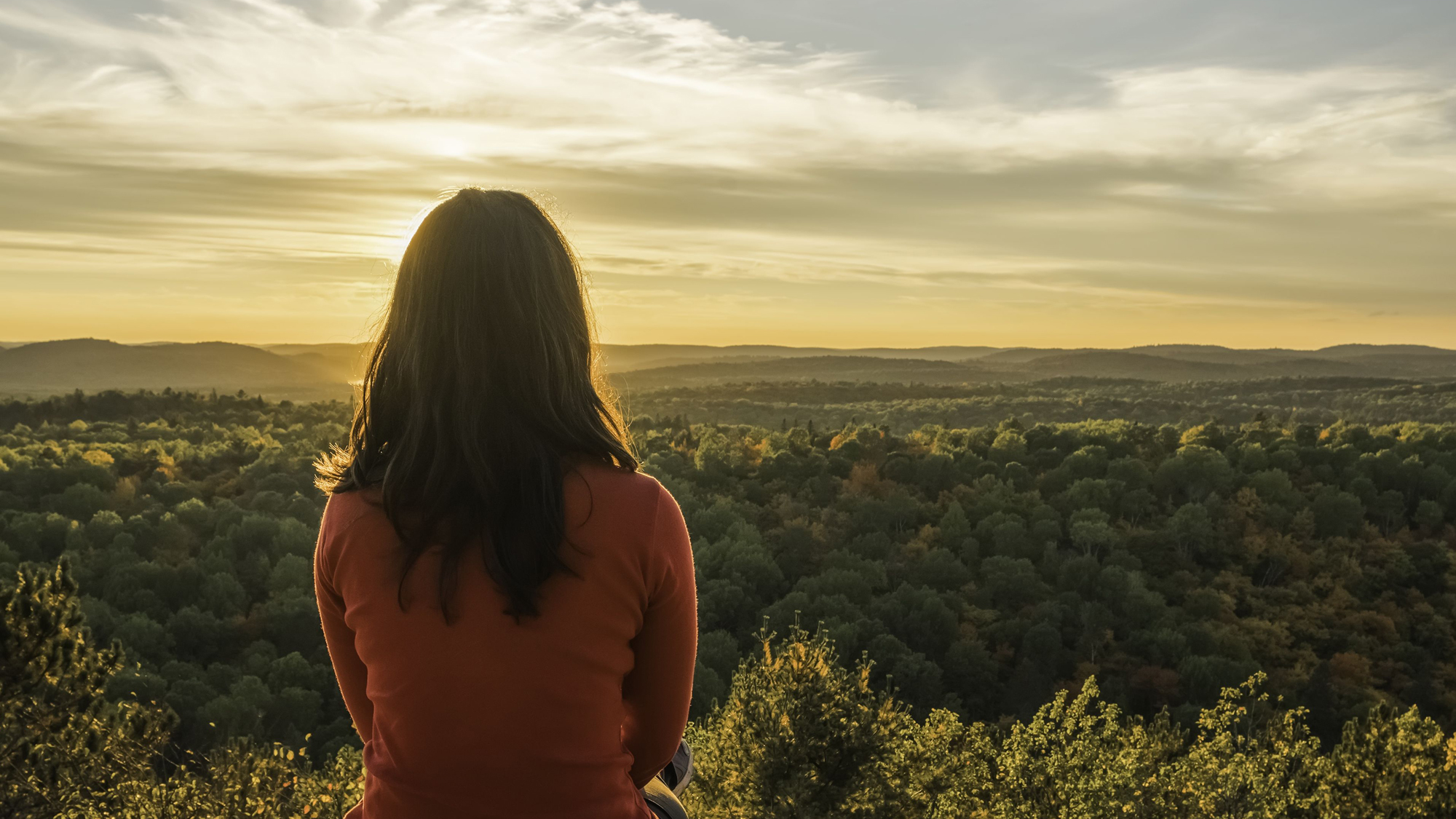This is what it’s like being a transgender ex-military pilot
'My life prior to coming out, compared to now, is more than enough evidence for me that I’m far better off being myself.'

Celebrity news, beauty, fashion advice, and fascinating features, delivered straight to your inbox!
You are now subscribed
Your newsletter sign-up was successful
'My life prior to coming out, compared to now, is more than enough evidence for me that I’m far better off being myself.'
Words by Ayla Holdom
Coming out as transgender seven years ago feels like an eternity now, and in that time I’ve been incredibly fortunate with the people in my life.
I can’t explain why my gender and genetics assumed at birth (male) didn’t match how I have consistently felt myself to be (female). Over 25 years I tried my best to bury that deep down, believing with a huge degree of shame the deeply-engrained stereotypes that to be trans was wrong, made me lesser or in some way deluded.
That I overcame the chains holding me in that closet is testament not only to the deep pain of hiding your most fundamental self away, but also to the love and support of the people around me. My wife and I have been together 17 years and love one another more than we ever have, while family recognise that I am so much more content in life for the simple freedom of being myself.
Professionally, the emotional and intellectual capacity I once spent maintaining a male façade can now be put to far better use. In hindsight, it turns out having evidence to justify why I am trans to others is not essential for that to be true – my life prior to coming out, compared to now, is more than enough evidence for me that I’m far better off being myself. That simple freedom means I am now happy in ways I never imagined possible.
But I am a statistical outlier. Too many trans people still find themselves alienated from family and loved ones, struggling with employment or bullied at school; things often fuelled by seemingly innocuous public debates that demand trans or non-binary people justify their innate and consistent sense of self.
Celebrity news, beauty, fashion advice, and fascinating features, delivered straight to your inbox!
It always fascinates me that face-to-face, I have almost never experienced anyone demanding I justify something so innate as my gender to them. But those I’ve never met will do so gleefully under the banner of debate.
Frustrations run high on both entrenched sides and there are few winners – largely I think, because there’s little allowance in these conversations for context or empathy.
Logically, I must have come across people who hold on to those stereotypes as fact – even if they didn’t confront me with it. I came out while serving in the Royal Air Force as a search and rescue helicopter pilot, an environment generally perceived as alpha-male and with little room for perceived-nonsense such as being trans.
Yet, I found this environment to be one of the best places I could hope to have come out. The importance of our role and the success and safety of the team outweighed all other considerations. Added to that, any of us can only perform at our best by being authentically ourselves.
Certainly, the people we rescued didn’t much care whether one of the pilots was trans or not. In a sense, it forced some people to overcome perceived social or ideological barriers. We had other things to worry about.
Being trans doesn’t define me, so I don’t tend to lead with that subject if it’s not relevant. But a while after coming out, I made a conscious decision to stop apologising for who I was. Being trans wasn’t something I could change, I simply was.
Any time I’ve discussed being trans in any depth, I’ve ensured it was at a time and place that felt safe for everyone. But I realised that many of the people around me – who wanted to be inclusive – were afraid of putting their foot in it. They were treading on eggshells and needed confidence and empathy from me before we could sit down and talk. Bridges are quickest built both ways.
It’s why I was very happy to be involved in Heineken’s social experiment that resulted in the Worlds Apart film. Like the other participants (including my opposite number who is now very much a friend), I welcomed the idea of challenging our social echo-chambers and understanding why others hold the views they do.
We all have reasons to believe and feel as we do when we enter a conversation, but that should always be allowed to be up for revision – in both directions.
As on previous occasions, I found that understanding why others feel the way they do, even if we don’t share the same convictions, is essential to finding ways of living and working together. Even friendship.
If that happens over a beer, or cake, all the better!
The Human Library is currently working with Heineken in the UK to inspire everyone to celebrate diversity, open their world and focus on what unites us, not what divides us. As part of that, a series of Heineken events this summer will give people the chance to loan out one of The Human Library’s unique ‘books’ for the evening.
The leading destination for fashion, beauty, shopping and finger-on-the-pulse views on the latest issues. Marie Claire's travel content helps you delight in discovering new destinations around the globe, offering a unique – and sometimes unchartered – travel experience. From new hotel openings to the destinations tipped to take over our travel calendars, this iconic name has it covered.